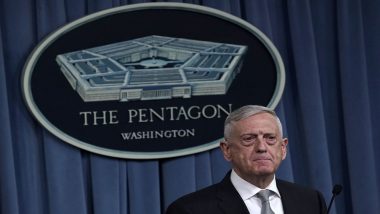A week since atleast 50 people died in an alleged chemical attack in the town of Douma in Syria's Eastern Ghouta region, the U.S. has attacked chemical weapons' research and storage facilities using surface-to-air missiles. The attack is a 'high-precision' attack to damage Syrian President Bashar Al-Assad's capability to launch any further chemical attacks against his civilian population.
Who are U.S' Allies?
The U.S. is not alone in the attack on Syrian facilities. The U.S. government co-ordinated with the United Kingdom Prime Minister Theresa May and France's President Emmanuel Macron to launch this joint attack.
French President Emmanuel Macron said he had ordered the strikes on Syria because "dozens of men, women and children were massacred with chemical weapons". "The red line had been crossed," he added.
The French presidency has tweeted a video which it says shows warplanes taking off before carrying out air strikes on Syria.
Décollage, cette nuit, des forces armées françaises qui interviennent contre l’arsenal chimique clandestin du régime syrien. Déclaration du Président de la République @EmmanuelMacron : https://t.co/HNSK0FmZIO pic.twitter.com/DEAW7R50aC
— Élysée (@Elysee) April 14, 2018
The UK too said it had used aircrafts to target the chemical facilities in Syria. UK PM May said that she believed Assad was complicit of chemical attacks and the UK's participation is a support of the country's allies.
The U.S.'s attack against Bashar Al-Assad is part of its opposition to the Syrian dictator's rule and has demanded that he step down.
- The U.S. and France have been working on the ground in Syria to defeat Islamic State militants.
- The U.S. is also supported by Israel and Saudi Arabia. The U.S. has 2000 special forces providing intelligence to Kurdish forces in North-Eastern Syria against Islamic State militants.
- Israel has carried out multiple air raids against Syrian military infrastructure targets. The Israeli government contends that Bashar Al-Assad is propped up with the help of Iran and Tehran is carrying out a proxy war in Syria to cement itself in Israel's periphery.
- Saudi Arabia has provided resources to defeat Assad's forces. Riyadh is a major provider of military and financial assistance to several rebel groups, including those with Islamist ideologies, and has called for a no-fly zone to be imposed to protect civilians from bombardment by Syrian government forces.
- Turkey to Syria's north also opposes the Bashar Al-Assad government but it also opposes the Kurdish militia ruling swathes of Syria and is hence in opposition to the U.S's stated objective in Syria.
Who Supports Syrian President Bashar Al-Assad?
Bashar Al-Assad, long-time ruler who has refused to depose and has carried out a seven year war against his civilian population is propped up with support from two big countries -Russia and Iran.
As rulers were toppled in the Middle East and Norther Africa (MENA) region during the Arab uprising, Syrian president Assad appealed to Russia for help to remain Syria's ruler. Putin promptly came to his aid and has continuously supported the Syrian government with military aid.
Moscow has blocked resolutions critical of President Assad at the UN Security Council and has continued to supply weapons to the Syrian military despite international criticism.
Moscow wants to protect a key naval facility which it leases at the Syrian port of Tartous, which serves as Russia's sole Mediterranean base for its Black Sea fleet, and has forces at an air base in Latakia, President Assad's Shia Alawite heartland.
Similarly, Iran is reportedly spending billions of dollars to prop up President Assad and his Alawite-dominated government, providing military advisers and subsidised weapons, as well as lines of credit and oil transfers. Tehran's Iran Revolutionary Guards are operating and heading operations against rebel forces in Syria.
Militiamen from Iran and Iraq who say they are protecting Shia holy sites are also fighting alongside Syrian troops.
As the above list shows, the conflict in Syria has drawn in major global powers, supporting and opposing President Bashar al-Assad and a myriad range of rebel groups are operating on Syrian soil which makes the region a tinder box waiting to explode.
It remains to be seen if Assad's supporters, Russia and Iran will respond to the U.S.-led attacks and what will be their targets and the scope of the attack. Syria might just be what leads this world to its third global war.
(The above story first appeared on LatestLY on Apr 14, 2018 09:26 AM IST. For more news and updates on politics, world, sports, entertainment and lifestyle, log on to our website latestly.com).


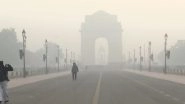

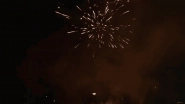



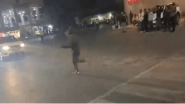

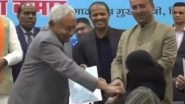


 Quickly
Quickly